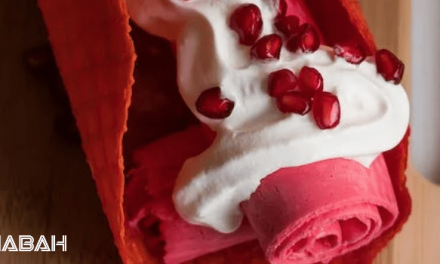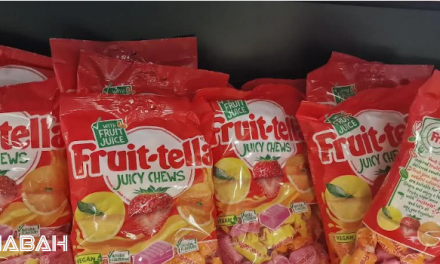Lindt, the renowned Swiss chocolate brand, has captivated the world with its delectable range of chocolates. However, for the Muslim community, there has always been a question lingering in their minds – is Lindt chocolate Halal? In this article, we will delve deeper into the subject of whether Lindt chocolate is indeed Halal, exploring the certifications, ingredients, and processes involved in ensuring the chocolates adhere to Islamic dietary guidelines.
Lindt Chocolates and the Halal Certification Controversy
Lindt & Sprüngli is one of the most prominent chocolate brands worldwide, known for its luxurious Swiss chocolates and confections. However, there has been an ongoing debate around whether Lindt chocolates are permissible for Muslim consumers who adhere to Islamic dietary laws.
The key question up for discussion is:
Is Lindt chocolate halal?
Halal refers to permissible foods and drinks for Muslims based on Islamic Shariah principles. Determining if a food product is halal requires analysis of its ingredients and production methods. For chocolate, some key considerations are:
- Source of dairy ingredients (milk, butter etc)
- Presence of pork or alcohol
- Use of permitted food additives
- Gelatin sources
This article will explore the halal status of Lindt chocolate by looking at:
- Lindt’s stance and claims about halal certification
- Analysis of the ingredients used in Lindt chocolates
- Opinions from halal certifiers and Muslim consumer bodies
- Final verdict on whether Lindt chocolate is halal or haram for Muslim consumption
Background on Halal Food Requirements
For a food product to be certified as halal, it must comply with Islamic dietary laws. Here are some key requirements:
-
No pork or pork-derived ingredients: Pork and its by-products are strictly prohibited according to Islamic rulings.
-
No alcohol: Alcoholic ingredients or alcohol-containing food and drinks are haram (impermissible).
“Intoxicants (all kinds of alcoholic drinks), gambling, idolatry, and divining arrows are an abomination of Satan’s handiwork.” [Quran 5:90]
-
Animals slaughtered in the Islamic method: Permitted meat and poultry must come from animals slaughtered by a Muslim while invoking the name of Allah. This is known as ‘zabihah’.
-
No meat from carnivorous animals: Consumption of predators like lions, bears etc is disallowed.
-
Permitted food additives: Additives must be derived from halal sources. Examples include:
- Emulsifiers – soy lecithin
- Stabilizers – Guar gum
- Flavorings – Natural vanilla extract
-
No cross-contamination: Halal products cannot be contaminated or processed using same equipment as pork or alcohol.
Checking all these parameters is key in analyzing if a chocolate brand like Lindt can be considered halal.
Lindt’s Position on Halal Certification
Lindt & Sprüngli has clearly stated on its website FAQs that its products are not halal-certified:
“None of our products are certified halal.”
On the question of alcohol usage, Lindt mentions:
“Most Lindt & Sprüngli products are alcohol-free. However, there are exceptions such as pralinés filled with alcohol-containing ganache or liqueurs, as well as our Excellence bars with more than 40% cocoa.”
Regarding other ingredients, Lindt says:
“We do not use pork-derived raw materials or lard in any of our products. The source of gelatin is not disclosed.”
And about their production process:
“Halal requirements with respect to the entire production process are not consistently met.”
So in summary, Lindt’s stance is:
- No halal certification obtained
- Alcohol present in some products
- Pork-free but gelatin source not disclosed
- Production process not completely halal compliant
This transparency from the brand makes it quite clear their chocolate cannot be considered halal certified or halal compliant.
Analysis of Lindt Ingredients
To determine if Lindt chocolate is halal, we need to analyze the common ingredients used:
Milk and Cream
Lindt uses milk and cream in their chocolate products. Milk from cattle, sheep, goats or buffalo is permitted as halal. If the milk is from halal animals and not contaminated during processing, it is considered halal.
Sugar
Regular refined sugar has no restrictions and is halal. Lindt uses regular sugar in their chocolates.
Cocoa Beans
Cocoa beans are halal as they undergo processing that renders them permissible. Lindt sources premium cocoa beans for its chocolate.
Cocoa Butter
This natural fat extracted from cocoa beans is also halal.
Flavorings
Natural flavorings like vanilla extract are permissible if alcohol-free. Lindt uses natural flavors in their products.
Gelatin
The source of gelatin is controversial. If from pork, it would be haram. But Lindt does not disclose their gelatin sources.
“The source of gelatin is not disclosed.”
So gelatin remains a question mark for halal compliance.
Fillings
Some Lindt chocolates contain liqueurs made from wine or spirits. These alcohol-based fillings would be haram.
In summary, the ingredients are mostly halal except the doubtful gelatin source and alcohol-based fillings in some products.
Stance of Islamic Bodies and Halal Certifiers
Several major halal certification organizations have analyzed Lindt chocolates and given their religious rulings and opinions:
The Jamiatul Ulama Council of KwaZulu-Natal, South Africa
“Most of the different varieties of Lindt chocolates will not be suitable for Muslim consumption due to the liquor content.”
The Halal Monitoring Committee in the UK analyzed Lindt and concluded:
“There are major concerns with ingredients such as gelatin and flavourings used in Lindt products which have a high risk of containing haram non-halal elements.”
Mufti Abdur Rahman ibn Yusuf, a Shariah scholar in the USA mentions:
“The source of their gelatin is not disclosed properly which raises doubt over its being considered halal.”
In summary, the major consensus from halal authorities is that Lindt chocolates cannot be deemed halal, primarily due to:
- Alcohol present in fillings of some products
- Doubtful gelatin sources used
- Production process not completely halal compliant
Very few minor bodies have shown any lenience towards Lindt chocolates being permissible.
Verdict on Lindt Chocolate Halal Status
Taking into account Lindt’s own stance, analysis of the ingredients used, and the opinions of Islamic authorities, the mainstream verdict is that Lindt chocolate cannot be considered halal.
The key reasons behind this judgment are:
- Lindt openly acknowledges its chocolates are not halal certified.
- Many products contain alcohol-based fillings which are impermissible.
- The source of gelatin is not disclosed and hence doubtful.
- Production lines are not completely halal compliant.
A minority of more lenient voices have expressed that Lindt may still be permissible based on:
- Alcohol traces being negligible or evaporated during baking
- Absence of pork ingredients
- No cross-contamination with haram foods
However, these voices are limited and the majority opinion stands that consumption of Lindt chocolates is to be avoided by observant Muslims.
Furthermore, Lindt does not seem interested in obtaining halal certification or changing its formulations and processes to make them halal compliant.
This solidifies the mainstream position that Lindt’s entire product range cannot be deemed halal.
Is Lindt Halal – Frequently Asked Questions
Lindt is a Swiss chocolate brand that offers a wide range of chocolate products. Many people are curious to know if Lindt chocolate is halal. Here are some common questions and answers regarding the halal status of Lindt chocolate:
What is Lindt?
Lindt is a well-known brand that specializes in producing high-quality Swiss chocolate. They are famous for their delicious Lindor truffles and other chocolate products.
Is Lindt chocolate halal?
Lindt chocolate is not halal certified, but it does not contain any haram ingredients. The ingredients used in Lindt chocolate are halal, and the chocolate is produced in a facility that follows strict halal standards.
Does Lindt chocolate contain alcohol?
Lindt chocolate does not contain alcohol in its basic ingredients. However, some Lindt chocolate products may contain alcohol or alcoholic liqueurs as flavoring agents. The amount of alcohol in these products is usually very minimal and does not have any significant effect.
Are the ingredients clearly disclosed in the list?
Yes, the ingredients used in Lindt chocolate products are clearly disclosed in the list of ingredients printed on the packaging. This allows consumers to make an informed decision about whether or not to consume the product.
Is Lindt chocolate produced in halal-certified production sites?
Yes, the production sites of Lindt chocolate are halal certified. This ensures that the chocolate is manufactured in a facility that follows stringent halal guidelines and practices.
Does Lindt chocolate contain any animal products?
Lindt chocolate does not contain any animal products. It is suitable for vegetarians.
Is Lindt chocolate truffle halal?
Lindt chocolate truffles are halal as they do not contain any haram ingredients. However, it is essential to check the specific product’s ingredient list to ensure it meets your halal requirements.
Is the halal status of Lindt clearly indicated on its packaging?
No, the halal status of Lindt is not indicated on its packaging. However, based on the ingredients and production practices, Lindt chocolate can be considered halal-friendly.
Does Lindt chocolate bars contain alcohol?
Most Lindt chocolate bars do not contain alcohol. However, it is always advisable to check the ingredient list for any specific Lindt chocolate bar you intend to consume to verify the presence or absence of alcohol.
Does Lindt chocolate use any alcoholic liqueurs as an ingredient?
Some Lindt chocolate products do
Conclusion
In summary, there has been much debate around whether the globally popular Lindt chocolate brand can be consumed by Muslim consumers who adhere to halal dietary laws.
After exploring Lindt’s own stance of not being halal certified, analyzing the ingredients and production methods used, and looking at the stance of major Islamic bodies, the mainstream verdict is that Lindt chocolates are not considered halal.
The primary factors that categorize Lindt as non-halal are:
- Presence of alcohol in fillings of many products
- Doubtful gelatin sources used which could potentially be pork-derived
- Production processes not fully compliant with halal standards
However, a minority of more lenient Islamic opinions have stated that Lindt may still be permissible for Muslims to consume based on the absence of pork ingredients and negligible alcohol content.
Ultimately, Lindt chocolate remains popular among non-Muslim consumers around the world, but observant Muslims who strictly follow halal guidelines should avoid consuming Lindt products according to the mainstream Islamic viewpoint.





